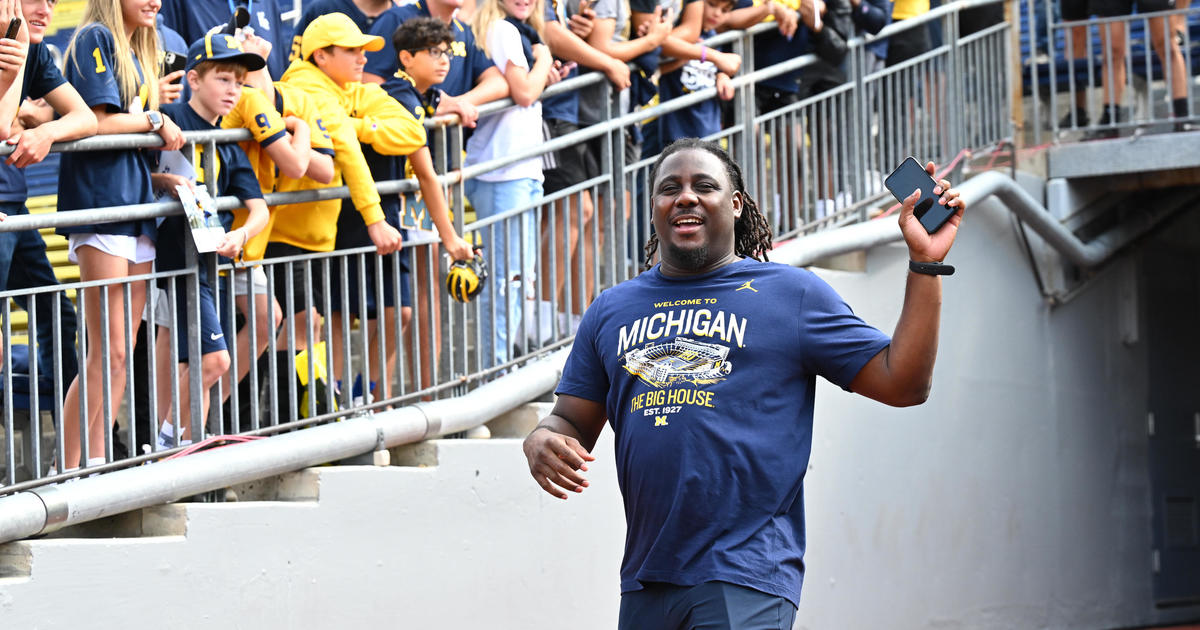Twitter CEO Returns To Alma Mater UM
ANN ARBOR -- Social media like Twitter that offer instant reaction to news events has recreated the Greek 'agora' shared meeting space and complemented the traditional news media in unexpected ways, Twitter's CEO said Friday.
Dick Costolo, a 1985 computer science graduate of UM, spoke to several hundred students in an event at Rackham Auditorium sponsored by UM's Ford School of Public Policy and its School of Information.
"Twitter complements television in ways that the digerati of the world would think would disrupt television," Costolo said. "When NBC was broadcasting the Olympics, they were tape delaying a bunch of events. And a bunch of people were tweeting #NBCfail, 'We already know Ryan Lochte won, because he tweeted he won, so why are you guys bothering to say, tune in tonight to see who wins?' But what happened was, NBC had the highest rated Olympics that have been had in 36 years. What was going on was, people were talking about it on Twitter during the day, with that inside-out view of the content from the athletes themselves instead of a guy in a broadcast booth, and that made people increasingly excited about watching it."
Costolo said the number of tweets about major news event have skyrocketed to 10,000 to 12,000 tweets per second on election night.
Costolo also had a message for students to follow their dreams. That's because he filled his non-computer science course schedule at UM with theater classes, and after his graduation, he didn't go to work for Microsoft or Apple -- he went to Second City in Chicago to study improv and worked for years as a standup comic. He wouldn't get into technology until the late 1990s, when he eventually founded several tech companies, the last of which was Feedburner, a news feed manager that was eventually sold to Google for $100 million.
He took a temporary assignment as COO of Twitter in 2009, when his friend the CEO took parental leave, and wound up CEO.
"I was probably the last on the list of computer science graduates in 1985 to be running a tech company 27 years later," Costolo said. "It's just a reminder that you should always do what you want and to follow your passion and it will probably work out all right. And you can all tell your parents I said that."
Costolo's presentation kept returning to the Greek agora. He said the printing press and later broadcast media made the media increasingly filtered, top-down and one-directional. Twitter, he said, has made the media multidirectional again.
"Twitter reinvents the agora," he said. "It offers multiple perspectives on a news event, a shared perspective, an unfiltered perspective, that also complements these traditional forms of broadcast media."
Twitter also provides more access to and interaction with celebrities, who are no longer the cardboard cutouts created by publicists, but instead emerge as real people. Costolo's favorite example of that was a Twitter conversation in which the comedian Sara Silverman tweeted, "When your family is really bugging you, pretend you're in a Woody Allen movie," and Allen's ex-wife Mia Farrow tweeted back,"I tried that and it didn't work."
Also, retailers have described Twitter as "like being able to walk the sales floor with your customers in real time," Costolo said.
Twitter has also provided an important new way to communicate in crises and disasters like hurricanes, Costolo said. And it's rendered censorship and injunctions to take down news content practically moot.
And he said the 140 character length limit on tweets is "sacrosanct" because of the focus it imposes on users. And it started out, by the way, of length limitations on cross network text messaging between the United States and Canada.



